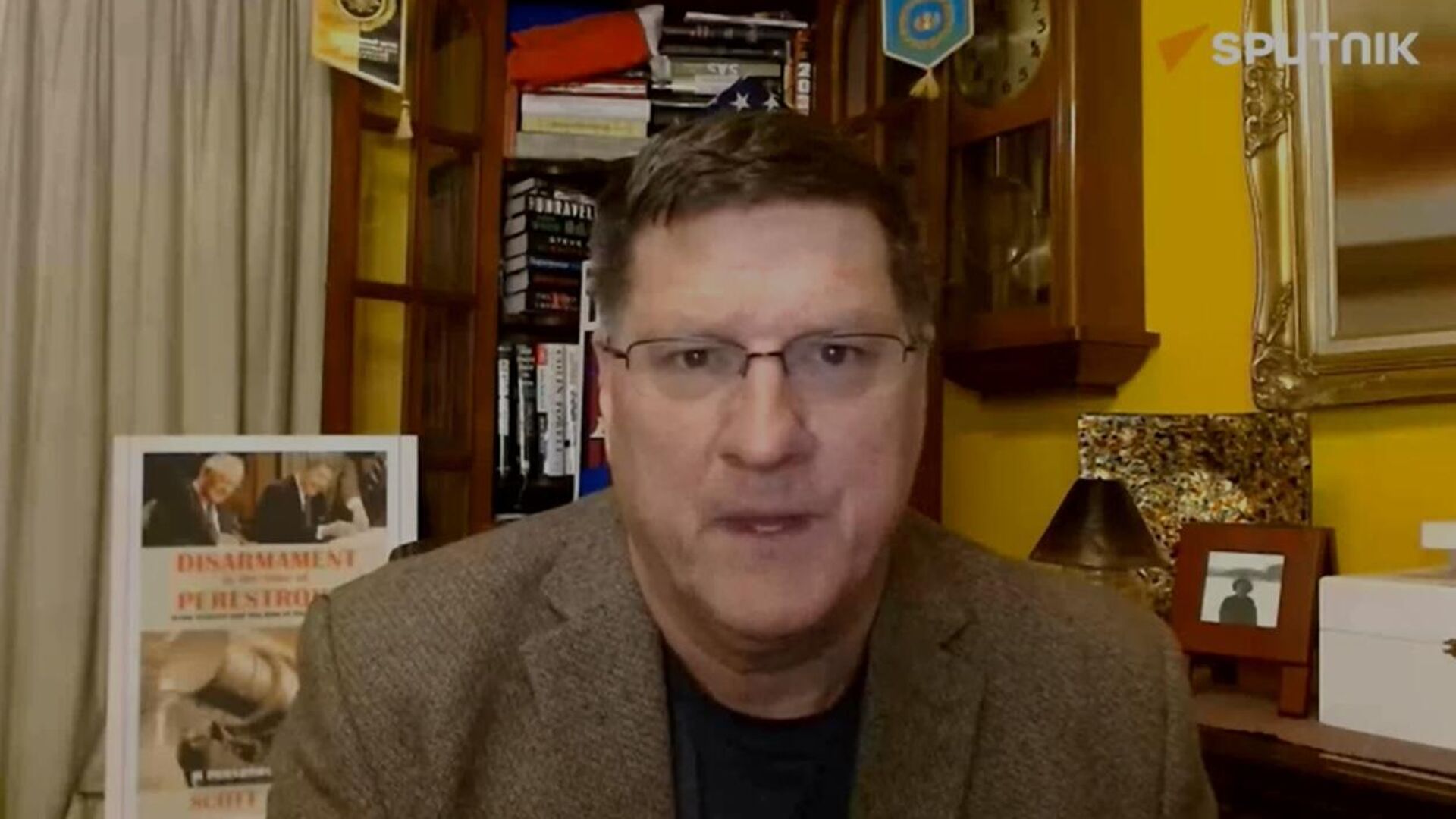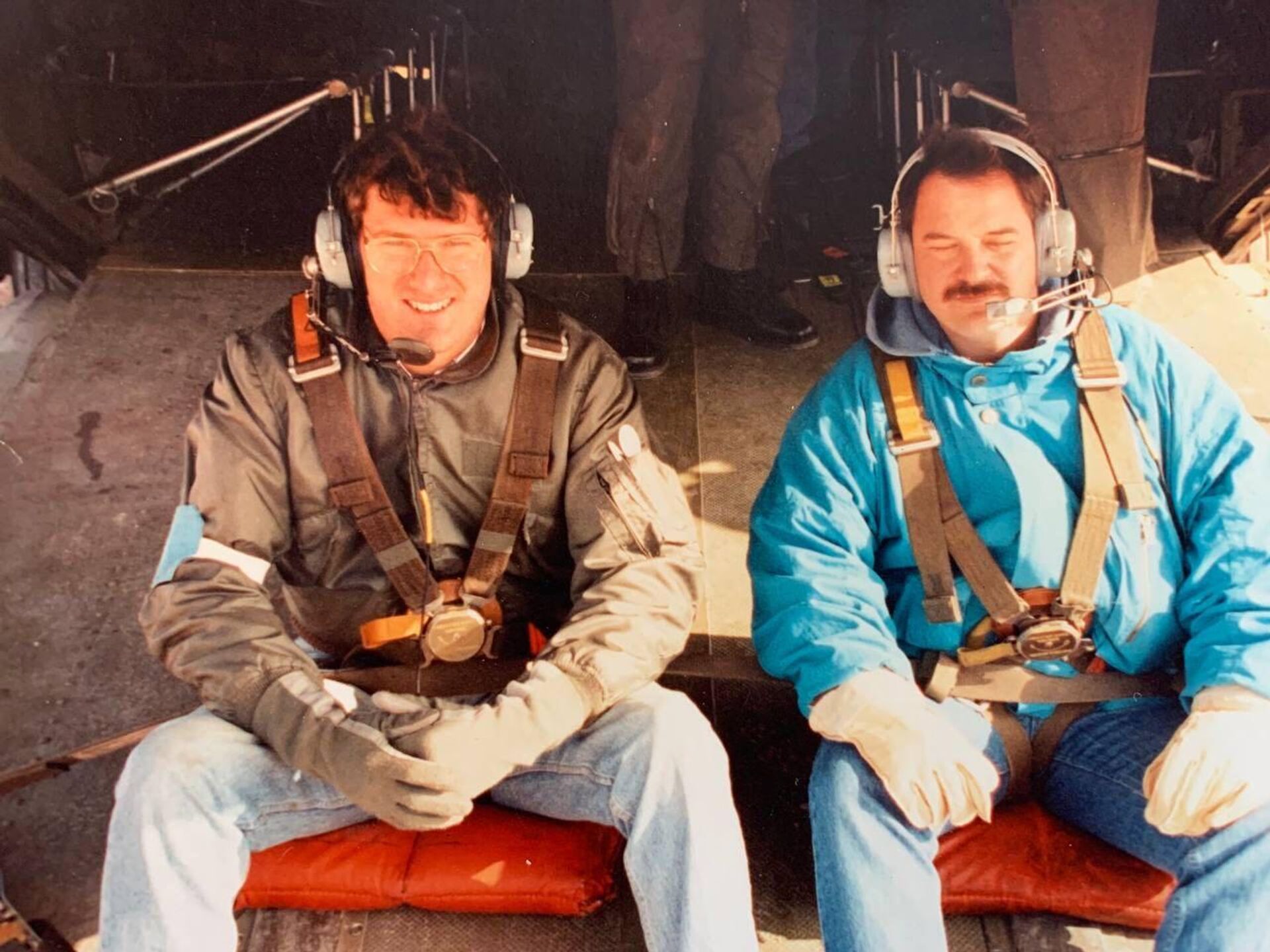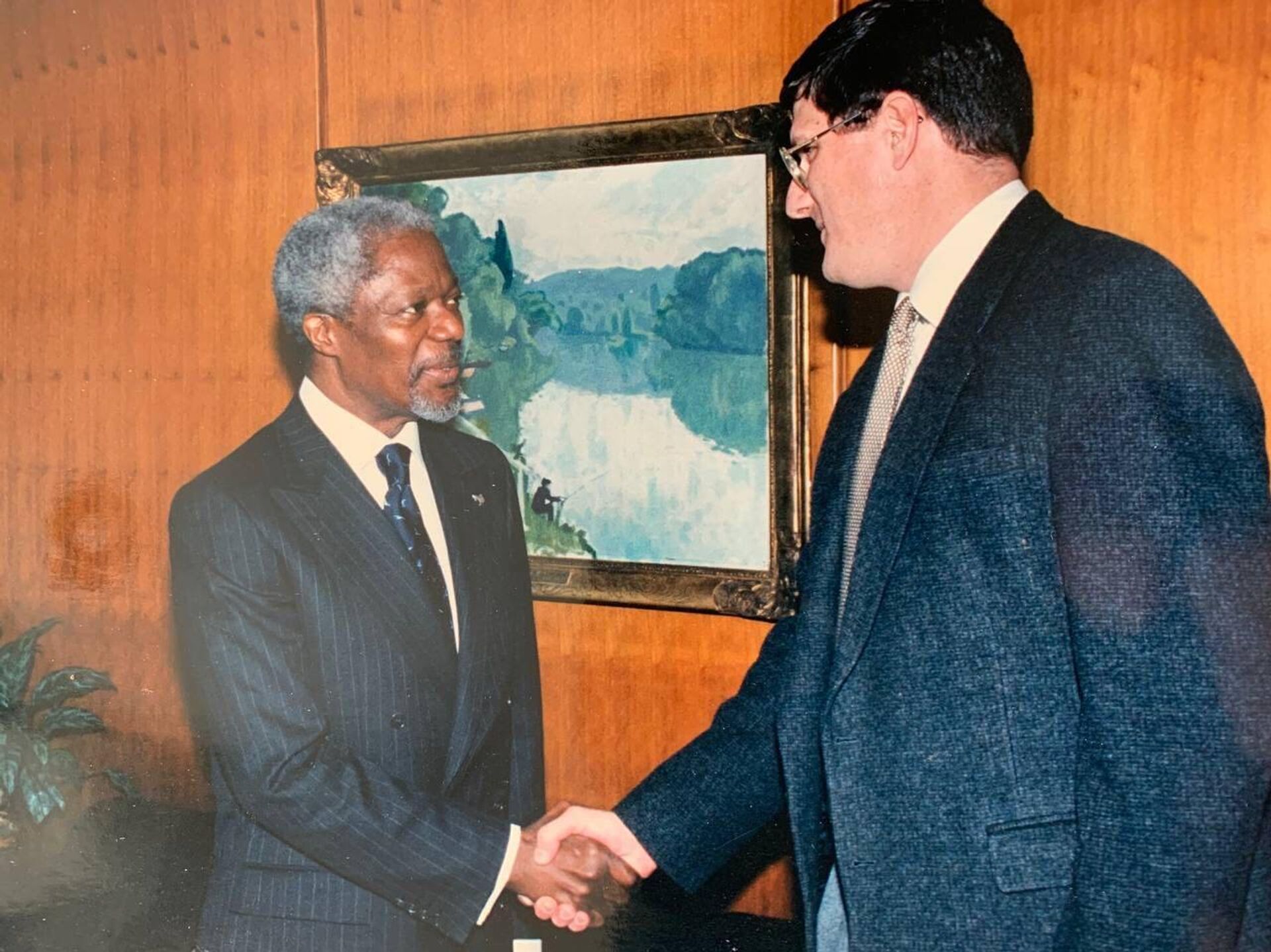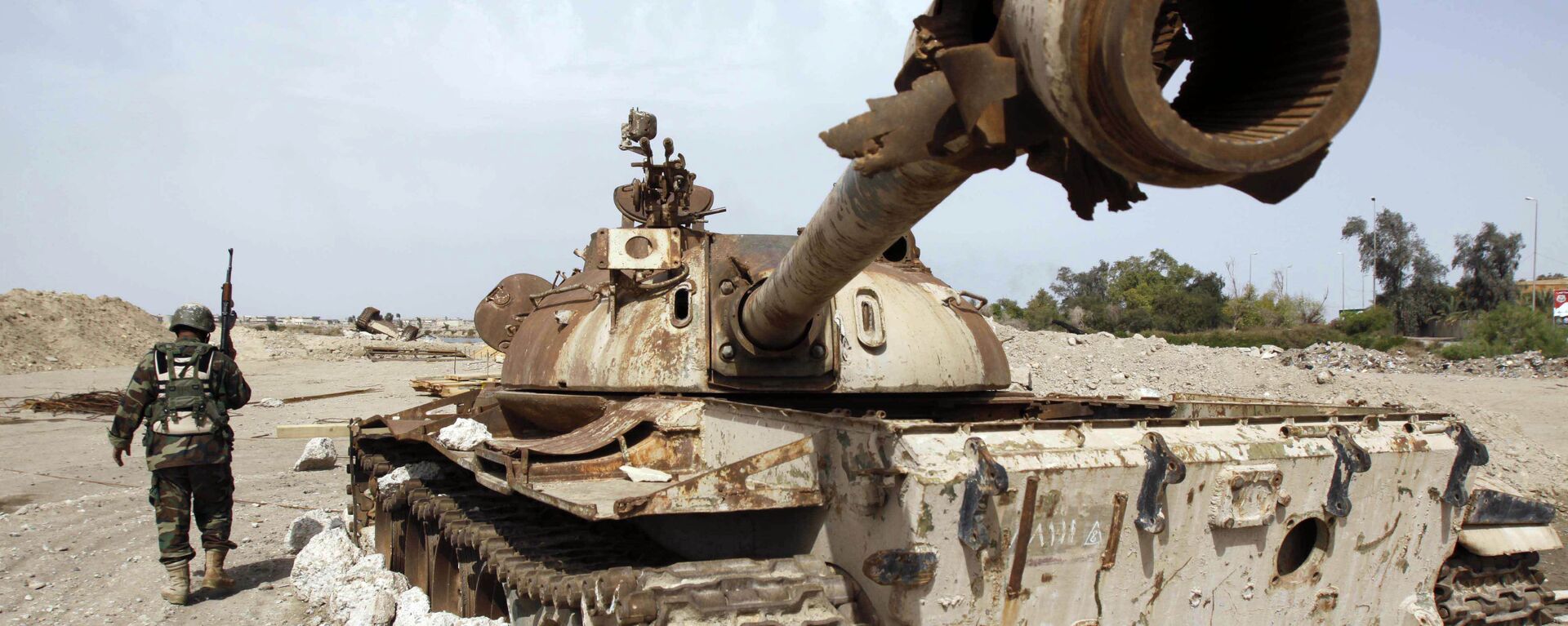Scott Ritter: Biden Led the Charge to Invade Iraq
15:00 GMT 19.03.2023 (Updated: 15:16 GMT 19.03.2023)

© Sputnik
Subscribe
Joe Biden led the charge to push the 2003 US invasion of Iraq, according to Scott Ritter, who served as the United Nations chief weapons inspector in the country from 1991 to 1998.
In the lead up to the war, then-Senator Biden used his position as chair of the influential Senate Foreign Relations Committee to help sell the George W. Bush Administration’s plans to a skeptical American public. He gave speeches and organized Senate hearings that promoted the administration’s false claims about Saddam Hussein’s WMD program. In October 2002, Biden spearheaded a joint resolution that gave Bush sweeping powers to use military force against Iraq.
“Joe Biden is one of the main reasons why the United States went to war in Iraq. He likes to pretend that he didn't play such an important role, but I'll say it now and I'll say it forever: Joe Biden's a liar.” he said. “Joe Biden's a man who allowed thousands of Americans to be sacrificed for his pride, for his arrogance, for his narcissism, because he knew that one day he was going to be President of the United States.”
According to Ritter, Biden brushed moral and geopolitical concerns about invading Iraq aside because he did not want to face accusations that he was taking a “pro-Saddam” stance. Biden’s failure to speak out against the war, he added, helped result in the deaths of hundreds of thousands of Iraqis, tens of millions displaced, and broader chaos in the Middle East.
© Sputnik
The conflict was not cost-free for the United States either, resulting in thousands of American troops dead and tens of thousands maimed.
Sputnik News spoke with Ritter ahead of the twentieth anniversary of the US invasion of Iraq. Over the course of a 50-minute long video interview, the former UN inspector explained how the US government created a false pretext for the war, sought to intimidate dissidents into silence, and why Washington failed to learn anything from its costly debacle.
Road to War
In August 1990, Saddam Hussein invaded neighboring Kuwait over the oil-rich monarchy’s refusal to forgive Baghdad’s debts from the Iran-Iraq War. Less than six months later, in mid-January 1991, the United States and its allies launched a massive aerial bombing campaign followed by a land offensive to dislodge Iraqi forces from Kuwait.
Ritter told Sputnik that the main reason why the George H.W. Bush administration decided to militarily intervene because it feared that control of Kuwait combined with Iraq’s existing oil wealth would provide Hussein with disproportionate influence over global oil markets. The problem with this rationale, however, was that few Americans viewed it as a compelling enough reason to go to send troops abroad. The most popular anti-war chant of the era was “No American blood for oil.”
“We had to reshape this conflict by focusing not on the geopolitical reality, but on creating a cartoon-like enemy out of Saddam Hussein,” he said. “When Bush addressed a fundraising crowd in Dallas, he said that Saddam Hussein was the Middle East equivalent of Adolf Hitler, and that for his crimes against Kuwait, there would have to be a Nuremberg-like retribution. This was a decisive statement because now the United States was at war against evil.”
Although Iraqi forces fully withdrew from Kuwait in February 1991, the American propaganda campaign against Hussein continued moving ahead at full speed. The new focus was on Baghdad’s alleged weapons of mass destruction program, which Washington claimed posed a danger to the United States and the Middle East at large.
Although Iraq had indeed at one point sought to develop WMDs, there were two problems with this narrative, according to Ritter. The first was that even if Iraq possessed WMDs, they were not much of a threat since the US military had spent decades preparing to fight against potential adversaries who used chemical or biological weapons. Even more significantly, however, the US did not actually want to disarm Iraq.
“We UN inspectors were going into Iraq thinking that we had a job from the highest legal authority in the world to disarm Iraq, but then as we're doing this job, we have [US] Secretary of State James Baker saying in public that even if Iraq complies with its obligation to disarm, sanctions will never be lifted until Saddam Hussein is removed from power,” he said.

Scott Ritter worked as a weapons inspector for the United Nations Special Commission in Iraq
© Scott Ritter
Ritter explained that US policymakers pushed the WMD narrative because they were embarrassed about Hussein’s continued political survival despite sweeping sanctions against Iraq. They needed a pretext to keep the pressure up on Baghdad and push for regime change. After all, how could they allow a man that they had openly compared to Hitler remain in power?
“We [inspectors] were just there as a placeholder to create a political situation that allowed the continuation of sanctions,” he said. “It was never about disarmament, always about getting rid of Saddam Hussein. The problem is, after six months, Saddam was still there. Now, what do you do? What's the next step?”
Ritter revealed that although there were back-channel communications between the transition teams of President-elect Bill Clinton and Baghdad about resuming relations, these negotiations were cut off after US intelligence agencies faked an Iraqi assassination attempt on George HW Bush, who had just left the White House, during a visit to Kuwait in April 1993. Clinton retaliated by firing missiles at Iraq and maintaining the sanctions regime against the country. In 1998, he signed the “Iraq Liberation Act,” which stated regime change was the official objective of US policy in Iraq.
Silencing Dissent
Despite this political background, Ritter’s team of UN inspectors worked to avert war by dismantling Iraq’s remaining WMDs. “We accounted for 95-97 percent of their weapons of mass destruction,” he said. “We were monitoring the totality of their industrial infrastructure so they couldn't rebuild these weapons. Anything that wasn’t unaccounted for would have aged out, same goes for precursor chemicals.”

Scott Ritter worked as a weapons inspector for the United Nations Special Commission in Iraq
© Scott Ritter
Yet the US government constantly tried to move the goal posts for the inspectors, demanding that they prove with 100 percent certainty that Iraq had no WMDs (an objective that was effectively impossible to achieve). Ritter sought to raise his concerns with senior US officials, including the director of the CIA, but was repeatedly brushed aside.
Things took a decided turn for the worse in 1996, when the FBI began harassing Ritter and his family, even threatening him with arrest. This persecution only intensified after Ritter resigned from his UN inspector role in 1998. On the very same day as his resignation, the FBI leaked a false allegation to CBS Evening News that Ritter had been passing on state secrets to Israel. In reality, Ritter had been engaged in an intelligence liaison activity that was approved by none other than the CIA itself.
Although the accusations against Ritter were obviously false, the CBS News report led to the Southern District of New York opening a three-year long investigation into him.
“So here I was, an American citizen trying to do the right thing and the FBI was investigating me for falsified crimes that carried the death penalty. That investigation went on for three years. I ended up winning and they dropped the charges, but I couldn't get employment during that time,” he said. “Every opportunity that was provided to me was shut down because the FBI said, ‘He's a spy, he's a criminal, You can't do business with him.’ That's what the FBI, the U.S. government does to people who have the audacity to try and speak truth to power.”
Lessons Learned?
Twenty years after the Iraq Invasion, Ritter sees little evidence that the American foreign policy establishment has learned from its mistakes. He explained that US policymakers have absolutely no incentive to embrace realism and restraint since most of the major political donors support military interventionism abroad. This problem is compounded by the fact that there is no meaningful anti-war movement in America. Criticism of US foreign policy is usually driven not by principle, but by opportunistic party politics.
However, Ritter suggested that America’s era of political complacency may be coming to an end. He noted that the main reason why many Americans turned a blind eye to their government’s reckless foreign policy adventures was because they were able to isolate themselves in a “cocoon of consumer-driven comfort.” Yet this sort of escapism is becoming less and less viable. In the face of rapidly mounting political, social, and economic problems, Americans will be confronted with the choice between reforming their country or perishing.
“The nation that emerges [from this crisis] won't look anything like the nation that exists today. It can't because this nation is fundamentally broken, sick, diseased,” he said. “We have to cure the disease, heal the wounds, and recast ourselves as a nation of one of equals, one that can sit down at a table with the rest of the world and not try to dictate outcomes, but instead talk with people and negotiate outcomes that are mutually beneficial to all, but more importantly, that are beneficial to the American people instead of just the American political elite.”




